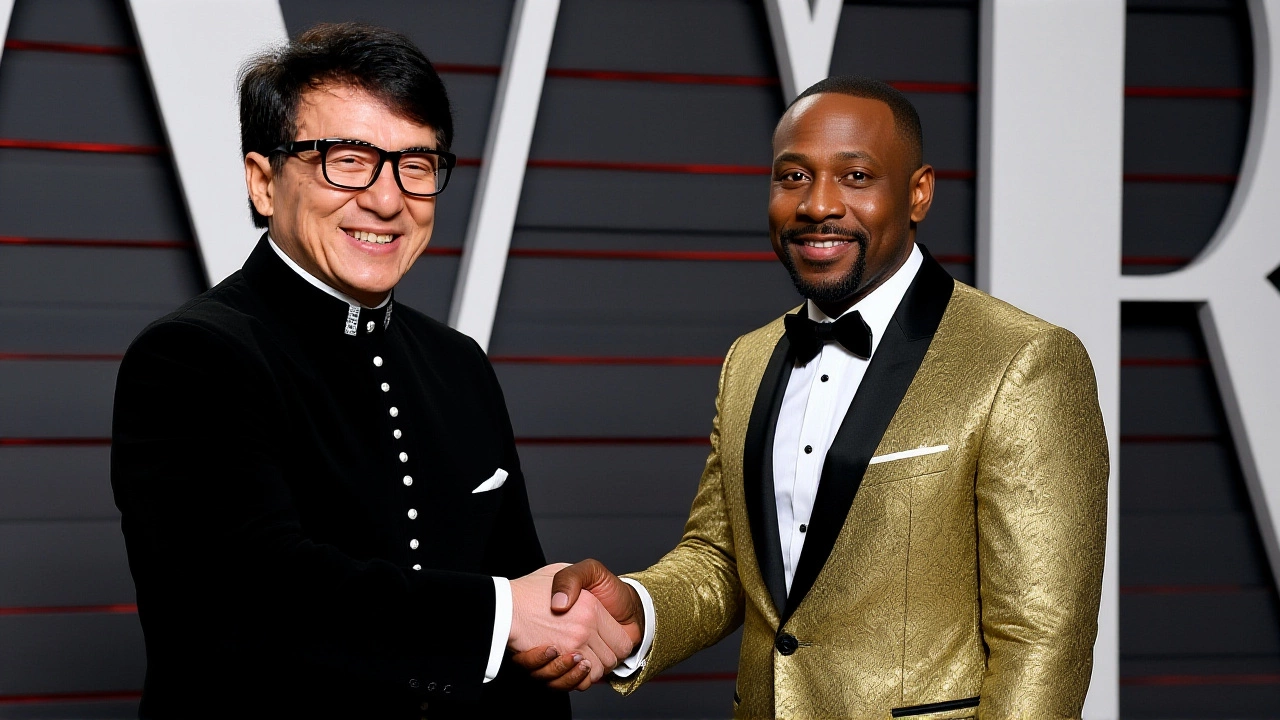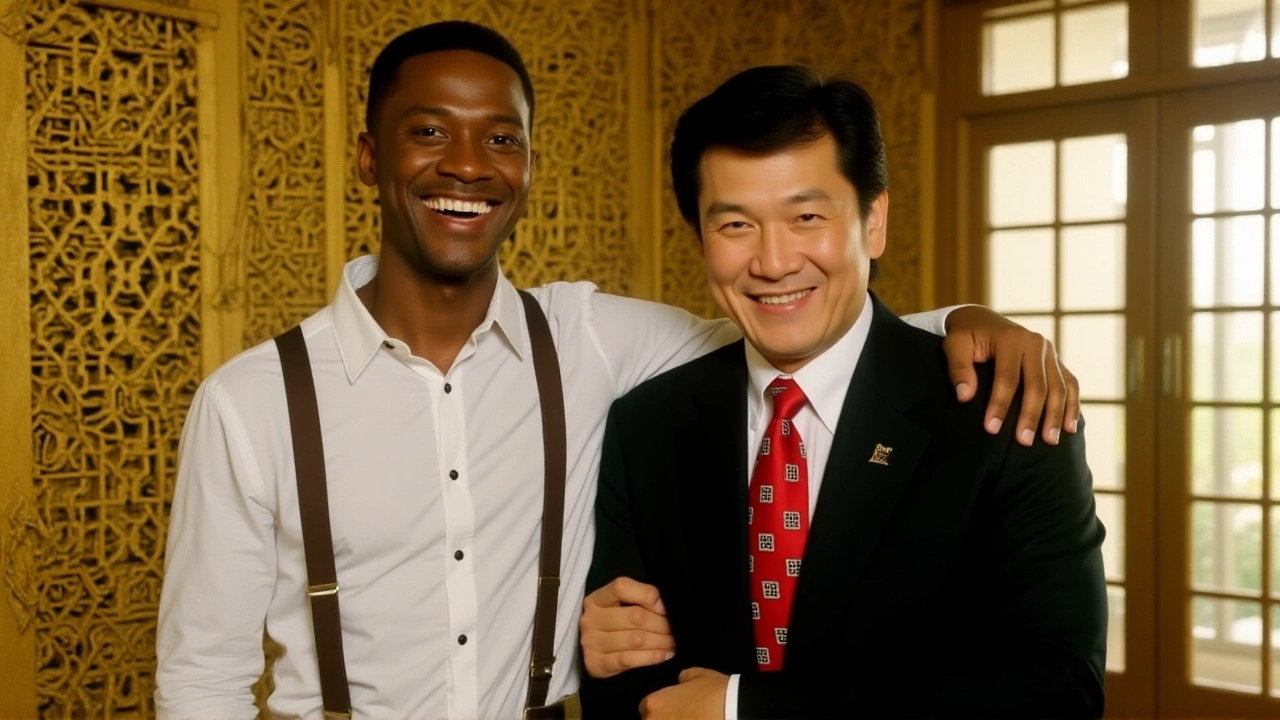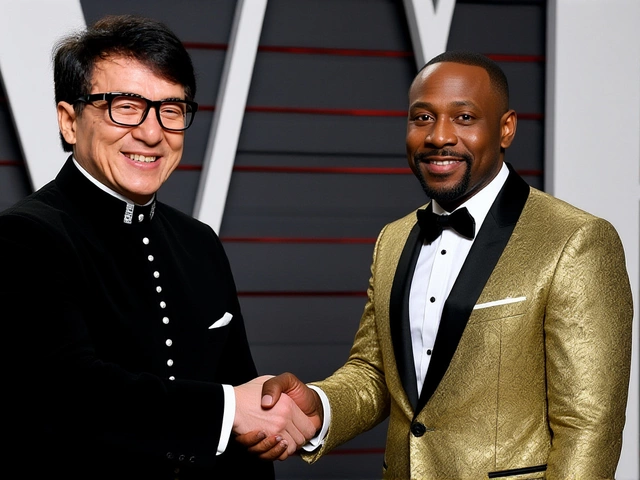Rush Hour 4 Revived After Donald Trump Personally Demanded It

It’s not every day that a former president personally calls a studio executive to greenlight a sequel to a 2007 action-comedy — but that’s exactly what happened with Rush Hour 4. According to reports from Semafor on November 23, 2025, and confirmed by Deadline on November 26, 2025, Donald J. Trump — then 79 years old — personally urged Larry Ellison, billionaire co-founder of Oracle Corporation, to revive the franchise. The result? A deal struck between Paramount Pictures and Warner Bros. to produce the fourth installment, with David Ellison, CEO of Paramount and Larry’s son, overseeing the project. No studio financing. No studio risk. Just a flat distribution fee for Paramount — and a clear message: this film is happening because Trump wanted it.
Why Now? Why This Film?
The Rush Hour franchise, which began in 1998, is a curious artifact of late-90s Hollywood: a buddy-cop comedy built on Jackie Chan’s acrobatic martial arts and Chris Tucker’s rapid-fire, exaggerated persona. Critics have never loved it — Rush Hour 3 sits at a dismal 17% on Rotten Tomatoes — but audiences turned out. The third film grossed $258 million worldwide against a $140 million budget. Trump, according to multiple sources, has long cited the series as one of his favorite films. He reportedly watches it regularly at Mar-a-Lago. And in a cultural climate where "anti-woke" sentiment has become a badge of honor for some in entertainment, the film’s unapologetic stereotypes — and its sheer, unironic energy — now feel like a statement."Cancellations are almost a credential," Semafor noted. "If you can bring back a film that was deemed politically incorrect a decade ago, you’re proving you’re not afraid to be bold."
The Return of Brett Ratner
The director behind all three Rush Hour films, Brett Ratner, was effectively blacklisted after multiple women accused him of sexual misconduct in 2017. Warner Bros. cut ties. Other studios wouldn’t touch him. But now, he’s back — directing his first feature since 2014’s Hercules, which made $249 million but earned lukewarm reviews. His comeback? A pro-Trump documentary about First Lady Melania Trump, set to premiere January 30, 2026. That film, produced by Roger Birnbaum Productions — the same company behind The Man You Don’t Know, which debuted at Mar-a-Lago in January 2024 — helped clear the path. Ratner’s return isn’t just about talent. It’s about alignment."He’s not a victim," said producer Dallas Sonnier in a November 2025 interview. "He’s a survivor who made movies people loved. And now, the audience that felt silenced wants those movies again."
The Stars: Are They In?
Jackie Chan, 71, hasn’t headlined a major Hollywood film since 2016’s Skiptrace. Chris Tucker, 54, hasn’t appeared in a studio movie since Rush Hour 3 in 2007. Both men have been quiet about the project. Tucker reportedly turned down multiple offers in recent years, citing burnout. Chan, who still films extensively in Asia, has never publicly criticized Trump — but he’s also never endorsed him. The question hanging over the entire project: Do they even want to do this?MS NOW’s November 26 broadcast raised the issue bluntly: "Are they on board? Or is this a studio project riding on a political wave?" No official statements have been issued. But insiders suggest both actors are being offered unprecedented creative control — and guaranteed box office returns — to return. After all, this isn’t just a movie. It’s a cultural moment.

Hollywood’s New Power Structure
This isn’t just about one movie. It’s about who controls Hollywood now. David Ellison’s bid to acquire Warner Bros. Discovery — a deal that would merge his studio with the parent company of HBO, DC, and CNN — is nearing completion. Larry Ellison, his father and one of Trump’s top financial backers, has long been a quiet force behind conservative-leaning media investments. With Paramount Pictures set to distribute Rush Hour 4 — without financing it — the studio becomes a vessel for political will, not just profit."This is the first time a former president has personally brokered a film deal," said film historian Dr. Evelyn Tran. "It signals a new era where entertainment isn’t just shaped by market trends — it’s shaped by personal preference, amplified by power."
What Comes Next?
If Rush Hour 4 succeeds — even modestly — expect a wave of similar projects: 80s-style action films with minimal social commentary, male-led franchises with exaggerated stereotypes, and directors who were once "canceled" returning under new, politically aligned banners. The film industry is watching. And so is the public.As producer Sonnier put it: "We’re not making movies for critics anymore. We’re making them for the people who still believe in heroes who punch first and ask questions never."
Frequently Asked Questions
Why is Donald Trump involved in a Rush Hour movie?
According to multiple reports, Trump has long been a fan of the Rush Hour films, calling them his "go-to comfort movies." He reportedly pressed Larry Ellison — his major financial supporter and Oracle co-founder — to revive the franchise. His involvement isn’t financial; it’s personal and political, signaling a broader push to revive 1980s-90s style entertainment that critics once dismissed as "unwoke."
Is Chris Tucker or Jackie Chan confirmed to return?
Neither actor has publicly confirmed their participation. Tucker hasn’t starred in a studio film since 2007, and Chan’s last Hollywood lead was in 2016. While both are listed in development materials, their involvement remains unofficial. Sources suggest they’re being offered significant creative control and guaranteed profits to return — but no public statements have been made.
Why is Brett Ratner directing again after the #MeToo allegations?
Ratner was sidelined after 2017 sexual misconduct accusations, but his return coincides with a cultural shift where "cancellation" is now seen by some as a political badge. His upcoming documentary about Melania Trump, set for January 2026, helped rebuild his access to Trump-aligned circles. He’s not being hired for his past reputation — but for his ability to deliver the exact kind of film Trump wants.
Who is financing Rush Hour 4?
Paramount Pictures will only handle distribution for a flat fee. No studio is financing the film. The production costs are being covered by private investors — likely linked to Trump’s political and media network. This model mirrors other politically motivated projects that avoid studio risk while leveraging corporate infrastructure.
What does this mean for Hollywood’s future?
This marks a turning point: a former president directly influencing film content, bypassing traditional studio decision-making. If Rush Hour 4 performs, expect more politically aligned projects — classic action films, unapologetic comedies, and directors once deemed "unmarketable" returning under new, ideologically driven banners. Hollywood’s gatekeepers are shifting from executives to influencers.
Is this film likely to be successful?
Box office success isn’t guaranteed. Rush Hour 3 made $258 million but had a 17% critics score. Its appeal was purely audience-driven. If the film leans into its nostalgic, over-the-top style — and avoids modern critiques — it could find a loyal fanbase. But it’s unlikely to win awards or critical praise. Its success will be measured in ticket sales, not reviews.
